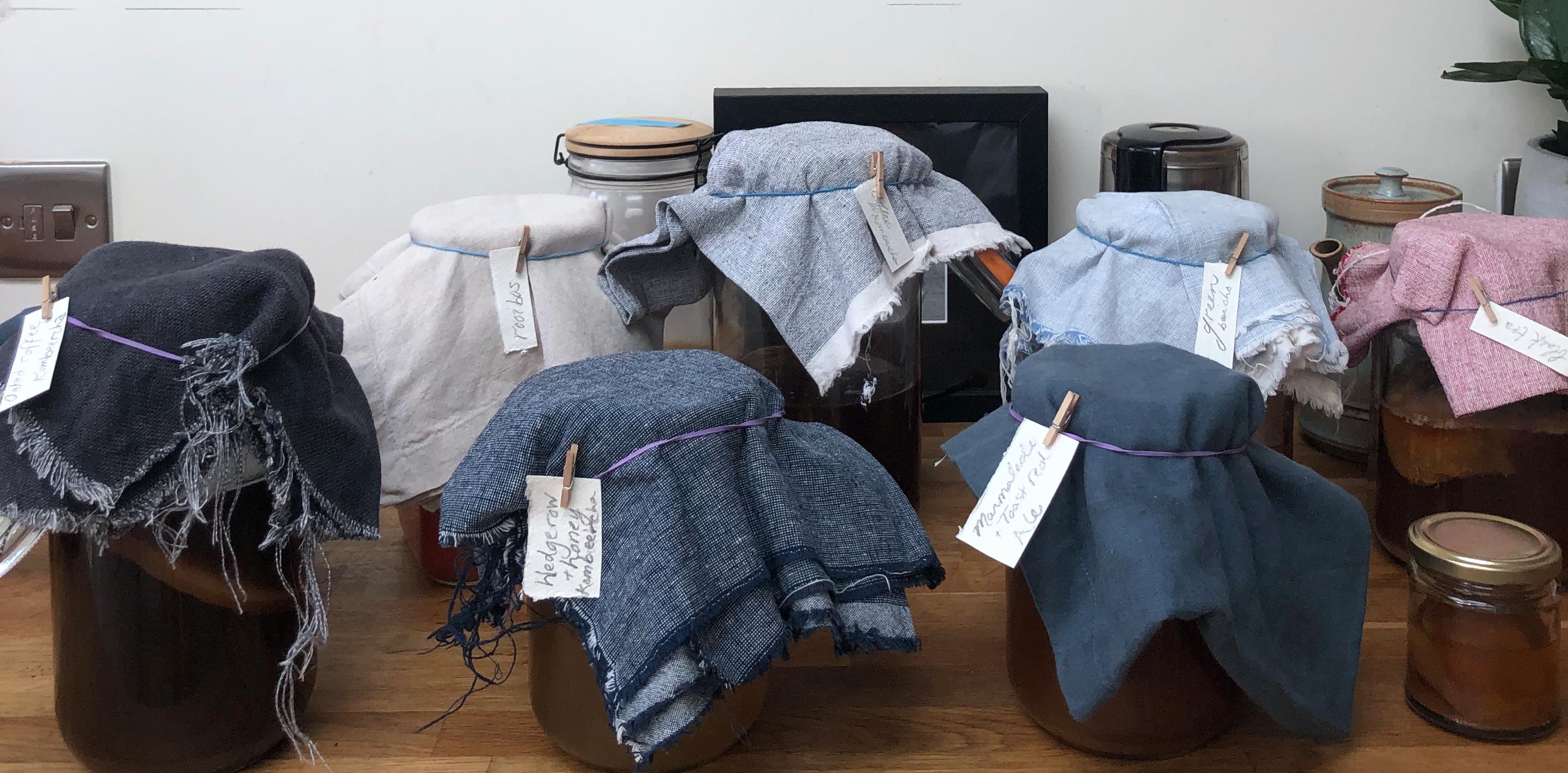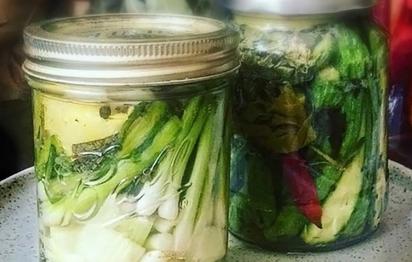
Basic Kombucha
You will need
1.5 litre jar; Cheesecloth or a clean tea towel; Bottles for storage
Fermentation time:
2 weeks
Makes 1 litre
14 tea bags or 4 tbsp of loose leaf tea (black, green, white or herbal)
1 litre boiling water
50-75g sugar
1 kombucha SCOBY
Method
Brew the tea with the boiling water (see variations below for guidance on which tea to use). Steep for 30 minutes, or until the tea has cooled. Strain, whisk in the sugar until dissolved.
Add your kombucha SCOBY to the tea. Pour in 2 tablespoons kombucha from a previous brew or apple cider vinegar - this helps kickstart fermentation; add more if you want to speed up the brewing process.
Cover with a clean cloth and leave to brew at room temperature (18-22°C) for anywhere from 10 days to 2 weeks. In the summer, unless your house is air conditioned or unusually cold, your kombucha will brew much faster, and in the winter, much slower.
Once you have your base brew, you can then add additional flavours (see below). Once flavoured, bottle, seal and ferment at room temperature for a day before placing in the fridge. For best flavour, drink within one month – after this time, the sugar will have been fermented out and the drink might have become too tangy.
Variations
Hugh’s Verbena Lemonade
Brew the tea for your kombucha base as above but use 8 bags of chamomile tea and 2 tablespoons dried lemon verbena for 1 litre of boiling water. Strain out the tea bags and dried leaves once the tea is cool and add the sugar and your kombucha SCOBY. Brew at room temperature for 10 days to 2 weeks, as above, bottle and add 4 sprigs fresh lemon verbena to the bottle. Seal and continue to ferment at room temperature for 1-2 days, over which time the kombucha will develop carbonation and be further imbued with the lemon verbena flavour.
Learn more about the art of fermenting

Fermenting is one of the most ancient and most widely used food and drink preparation techniques there is. If you love the tangy, savoury tang of sauerkraut, flavours of fermented veg, the delicate fizz of kombucha, the invigorating kick of kimchi, the delicate fizz of kombucha or the soothing calm of kefir, this is the course for you.
Fermentation is a transformative process that makes food not only more nutritious but also more delicious. By eating natural, whole and live foods, we can boost the profile of our healthy gut bacteria.
During this course you will be taken on a culinary adventure into the many realms of fermenting, exploring an array of krauts, kombuchas and lacto-fermented delicacies. By the end of the journey you will have your shelves lined with happy bubbling ferments and your fridge stocked with irresistible, meal-enhancing delights.
